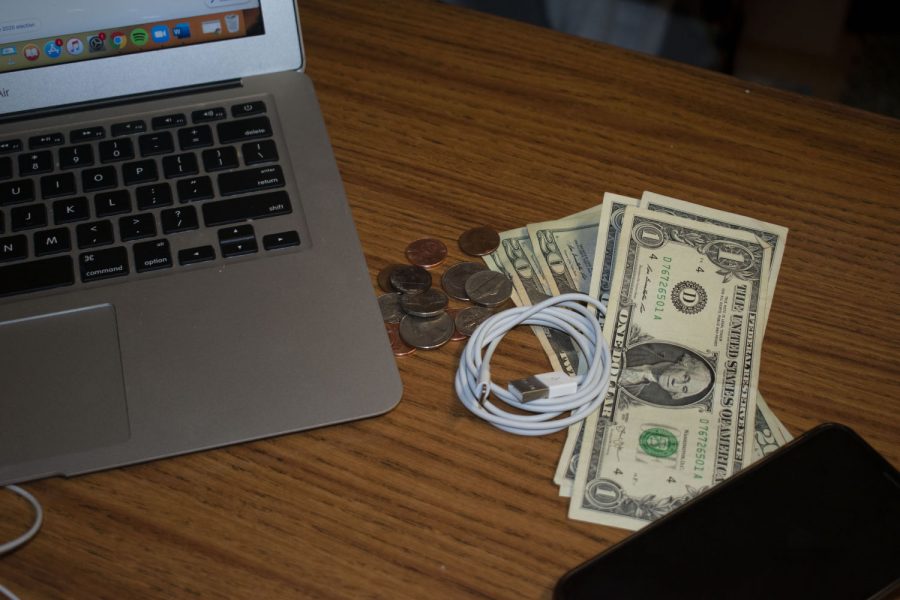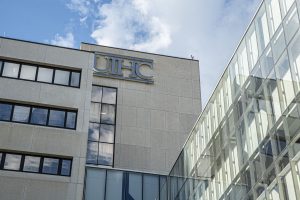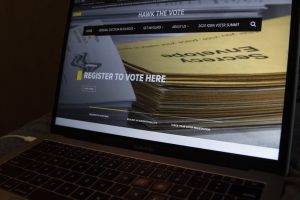Graduate college creating campaign to promote equity among graduate students
The UI Graduate college is promoting Diversity Equity and Inclusion by creating a GoldRush fundraiser, Tech Equity, to help graduate students who are marginalized and disabled have better access to technology
Photo Illustration by Raquele Decker
September 24, 2020
The University of Iowa Graduate College is creating a fundraising campaign to help provide technology resources for marginalized and low-income students, as many are struggling to find appropriate software to support remote learning.
As classes shifted to online platforms in the spring semester of 2020, the UI Graduate College began to notice a trend — marginalized voices with economic or situational disparities were being overlooked.
To address the need for technology, the UI Graduate College decided to start a GoldRush Crowdfund called Tech Equity to help provide technological resources for students that may need it.
Associate Dean at the UI Graduate College Shelly Campo said because of COVID-19, our dependency on technology increased as everyone was forced online for work and school. This has brought out more of the disparities that people have related to technology access and availability, she said.
“Part of the goal of this campaign is to help reduce the disparities that people are encountering,” she said, “like access to technology and high speed, reliable internet, that are mandatory to be successful in an online class or even in online Zom meetings for work.”
Through the GoldRush fundraising campaign, she said the UI Graduate College hopes to provide supplies such as laptops, internet access, WiFi hotspots, programming, cell phones, and other supplies needed for remote work.
Elizabeth Lara, the Graduate College’s Diversity, Equity, and Inclusion director, said COVID-19 has been affecting a lot of people, especially racial minorities. She also mentioned these groups already face economic inequalities, along with racial injustice.
“How much more can our students take?” Lara said. “[The lack of technology] is an unnecessary burden that we can try to help with between the technology and accommodations.”
This campaign hopes they can also raise money to provide better learning tools for students with disabilities, such as hearing impairments, who find virtual instruction difficult, Lara said.
Lara said it can be difficult to have captioners for online calls and to set everything up ahead of time. It can also be very expensive to schedule a captioner, she said, which can be estimated at costing a couple hundred dollars.
RELATED: University of Iowa drive-up Wi-Fi locations a ‘Band-Aid’ fix for larger problems or digital divide
On top of workloads and classwork, this can be a large burden for students. She said faculty at the Graduate College involved with the Goldrush are hopeful that with the funds donated, they can help ease the burden of marginalized students in the Graduate program.
Steve Varga, an associate dean at the UI Graduate College, said that normally the college would host a fundraiser event in person, but because of COVID-19, they have to utilize this online platform. They don’t have a lot of time to raise the money, either.
“This I think is the best option for us to be able to raise awareness and, you know, hopefully garner support in a relatively short time frame,” he said. “We have about a month to try to raise the funds, you know, prior to the switch to virtual instruction [after Thanksgiving break].”
The fundraiser will last until Oct. 31, which allows the university to allocate the funds and technology before the transition to completely online classes. Campo said those interested can donate or read more about Tech Equity at uigoldrush.org/techequity on any browser except Internet Explorer.
“If we’re a university that promotes diversity, equity and inclusion, then we need to take that equity piece seriously right now,” Campo said. “If we see those kinds of disparities, we should be taking actionable steps to correct them, or at least mitigate them in important ways. We’ve got a lot of students experiencing inequity right now and this is one way we’re able to change that.”






